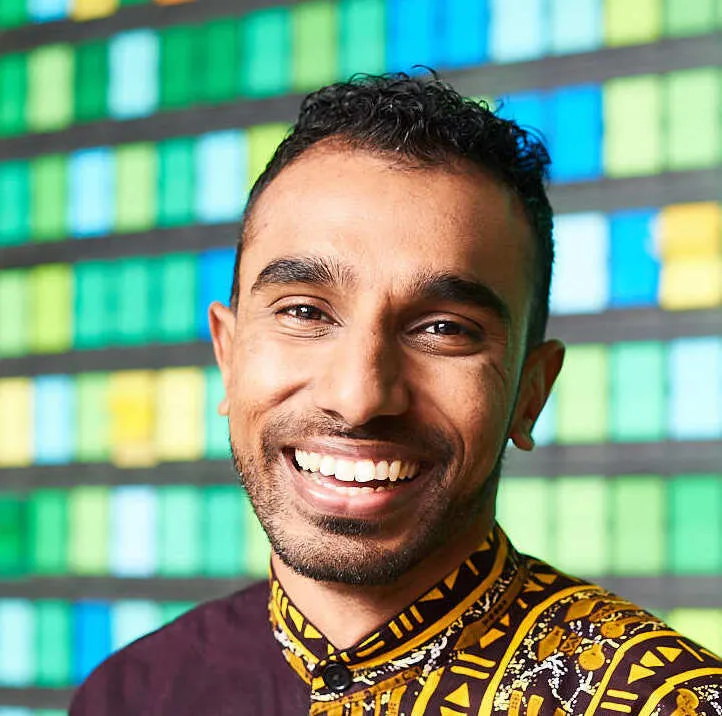Tanzania’s 28-year-old Benjamin Fernandes is the co-founder of NALA, Africa’s first mobile money application that allows you to make transactions without an internet connection.
At its core, NALA’s mission is about financial inclusion and so far the company’s approach has been characterised by three things: internet-free transfer of money within Africa; a transaction history tool that allows users to make smarter decisions on how and where they spend their money; and cheaper and easier money transfers to countries in Africa from outside the continent.
Three years after the app was first launched in 2018, NALA has approximately 250,000 users in Tanzania and Uganda. The app can now also be used to send money from the UK to Kenya and Uganda, and on 14 June this year, NALA received approval from the Central Bank of Tanzania for diaspora funds to be sent to its third East African country.
As a Tanzanian fintech solution, NALA’s approach is strongly Africanist.
By creating a money transfer platform that uses USSD technology, it is not dependent on internet availability. This is in direct response to the cost of mobile data in Africa, and spotty network coverage in some locations.
In its December 2020 report, the Alliance for Affordable Internet said that Africa as a region continues to rank among the lowest for affordable internet even though it experienced the fastest improvement since 2019. However, while 14 out of 48 African countries are considered to have affordable internet prices, none of these are in East Africa.
NALA’s decision to develop a home-grown platform with affordable money transfer rates was also in response to the higher rates charged by other providers.
“Africa is the lowest income-generating region in the world yet it has the highest transaction rates,” says Fernandes.
Of the $48bn sent to Africa in 2020 by family and friends in the diaspora, $3.3bn was lost in fees. NALA attributes this to the ‘wait and see’ approach of Africans, who expect solutions to be created for them rather than driving innovation themselves.
NALA’S website makes a strong call to reverse this attitude: “As Africans, we’re often underestimated – told to wait for others to solve our problems. Get involved and let’s build something amazing on our terms!”
Africa-first message
This Africa-first message permeates all of NALA’s marketing material and their promotional video, for instance, champions the African qualities of drive, commitment and resilience. NALA’s strong continent-focused overtures exude from its co-founder Fernandes. When he travels outside East Africa, Fernandes wears African patterned shirts.
“The African shirts are my personal brand. They are a beautiful reminder of who I am and where I come from,” he says. “They serve as a pleasant reminder of what the incredible NALA team and I are working towards.”
When Fernandes speaks at public events, his comments are peppered with Swahili proverbs that mirror the Ubuntu philosophy of collective responsibility.
He shares one with us: Af ‘Mmoja akifika, wote tumefika. Mmoja akishangilia, wote tumeshangilia.’ (If one of us succeeds, we all succeed and if one of us celebrates, we all celebrate.)
He mentioned another Swahili proverb in a 2018 article he wrote for Medium: ‘Mti wenye matunda hupigwa mawe.’ (The fruit-bearing tree always gets stones thrown at it.)
This hints at some friction that he may have experienced in his early days, and when asked what he wished he knew when he started NALA, he shares his regrets. “I wish I did not pay as much attention to venture capitalists and other people (who have never built anything) that insisted the African payment space was saturated. Over the next 10 years, we are going to see a wave of fintech-based companies popping up across the continent. I wish I was bolder with my demands earlier and took more risks.”
Fernandes’ tweets also often reveal his fascination with food, including one of his favourites, which is matoke (cooked and mashed unripe banana), a staple food in Uganda and other East African countries.
Even in this, his collectivist culture comes through. “Many people often see my social media posts saying ‘Thinking about food’ or something similar. While I do love food, probably stemming from my mom’s ability to cook various Swahili, Arab, Indian and Chinese cuisines, I’m not actually thinking about food. Rather, I’m thinking about problems that need solutions.”
He goes on to explain that he and his friends have tweaked the Swahili proverb about success to ‘If one of us eats, we all eat’, thus capturing the common drive to fix problems.
Triumph against expectation
While NALA attempts to change the narrative around Africa’s future by creating a homegrown solution to promote financial inclusivity, Fernandes’ personal story is also one of triumphing against expectation.
Growing up in Dar es Salaam, Tanzania, he wasn’t the best academic student in high school but his fortunes quickly changed. He graduated at the top of his class from a university in the US, and in 2014 he became the first Tanzanian and the youngest African to be accepted by the Stanford Graduate School of Business.
In 2017, Fernandes graduated with his MBA from Stanford and in a move that has been depicted as the ultimate sacrifice of personal financial gain for the love of country, he returned to Tanzania and invested the $20,000 that he received from the Frances & Arjay Miller Prize during his final year of business school into NALA, a company that he hopes will transform the fortunes of the continent.
“I always understood how privileged I was coming from a continent where millions of people would have loved to get a similar opportunity. I committed to moving back home and helping to build Africa. I am driven by the desire to contribute to the growth and development of my people back home,” he says.
NALA’s Build Our Africa talk series reinforces this Africa-first approach by creating a platform to bring together the continent’s leading tech founders and the next generation of young entrepreneurs. He hopes that these discussions will, among other things, allow Africa’s tech builders to capitalise on the increased B2B trade opportunities initiated by the establishment of an African Continental Free Trade Area in January.
“I see crucial unresolved problems in tech infrastructure that limit the growth of many technology companies across the continent. People who build tech infrastructure will be similar to people who sold shovels during the gold rush,” he says.
What will he set his sights on next? Well, he sees great potential in merchant payments, which he says no one has yet addressed on the continent. And since he is committed to taking more risks and being bolder with future demands, it is quite likely that Fernandes has already started experimenting with this.
Subscribe to Tech54, our weekly round up of news from the world of African tech.
Want to continue reading? Subscribe today.
You've read all your free articles for this month! Subscribe now to enjoy full access to our content.
Digital Monthly
£8.00 / month
Receive full unlimited access to our articles, opinions, podcasts and more.
Digital Yearly
£70.00 / year
Our best value offer - save £26 and gain access to all of our digital content for an entire year!
 Sign in with Google
Sign in with Google 



